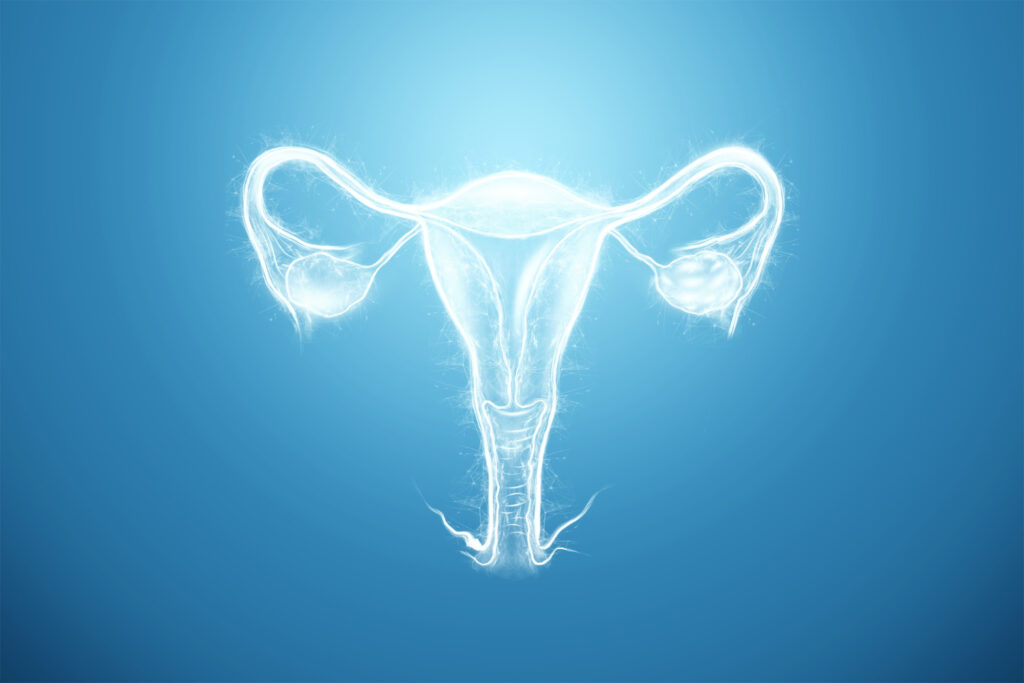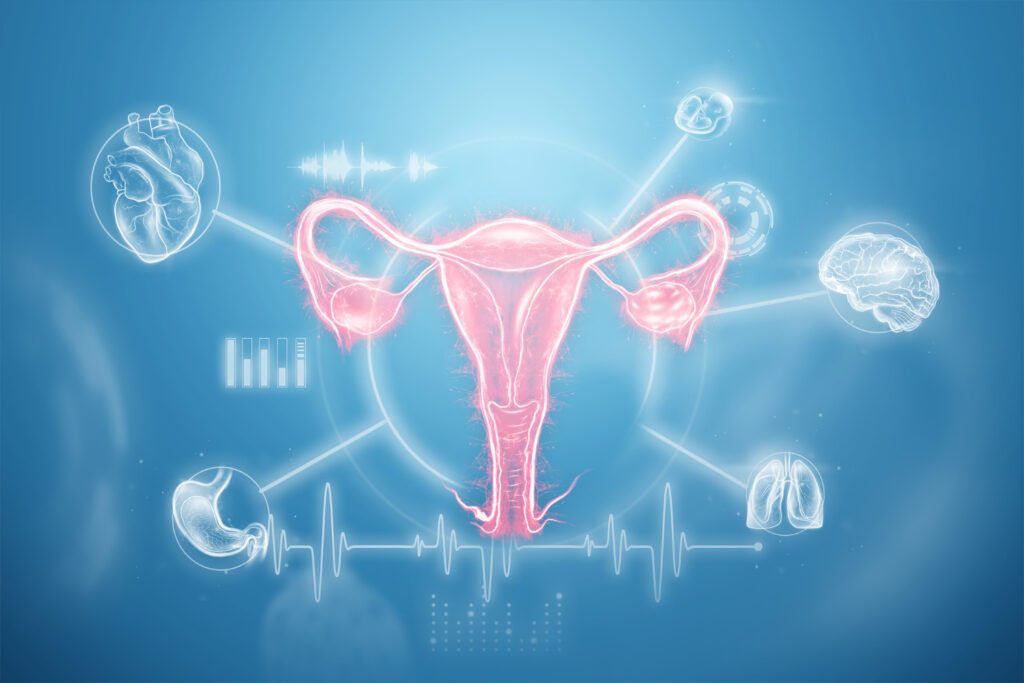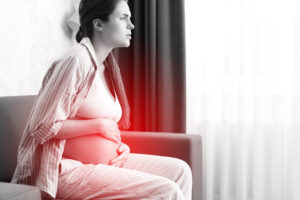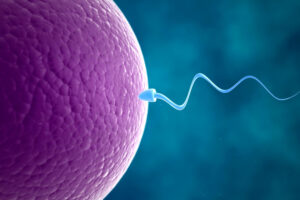Endometriosis is often misunderstood as just a “painful period condition.” While pelvic pain and cramps are the most recognized symptoms, the truth is that endometriosis can manifest in many unexpected ways.
In fact, some women experience no period pain at all but still struggle with symptoms that seem unrelated to their reproductive system.
Recognizing these uncommon symptoms of endometriosis can lead to an earlier diagnosis, better treatment, and improved fertility outcomes. Let’s explore the hidden signs you should never ignore.
What Is Endometriosis?
Endometriosis occurs when tissue similar to the lining of the uterus (endometrium) grows outside the uterus — such as on the ovaries, fallopian tubes, intestines, bladder, or even the diaphragm.
During each menstrual cycle, this misplaced tissue behaves like the uterine lining — thickening, breaking down, and bleeding. However, since it has no way to exit the body, it causes inflammation, scar tissue, and adhesions, leading to pain and potential fertility issues.
Endometriosis affects an estimated 1 in 10 women of reproductive age, but because many symptoms mimic other conditions, it often goes undiagnosed for years.
Common Symptoms of Endometriosis
Before diving into the lesser-known signs, let’s recap the typical symptoms:
- Painful periods (dysmenorrhea)
- Pain during or after intercourse
- Heavy menstrual bleeding
- Chronic pelvic pain
- Infertility or difficulty conceiving
While these are the most common, many women experience symptoms that seem entirely unrelated to menstruation. These lesser-known signs often delay diagnosis — sometimes by 7 to 10 years.
Uncommon Symptoms of Endometriosis You Shouldn’t Ignore
1. Digestive Issues That Mimic IBS
Endometriosis can attach to the bowel or intestines, causing symptoms similar to Irritable Bowel Syndrome (IBS), such as:
- Bloating (often called “endo belly”)
- Diarrhoea or constipation, especially around your period
- Nausea and vomiting
- Abdominal cramps after eating
If your digestive discomfort worsens with your menstrual cycle, it might not be IBS — it could be bowel endometriosis.
2. Painful Urination or Blood in Urine
When endometrial tissue grows on the bladder or urinary tract, it can cause:
- Burning or pain during urination
- Frequent urge to urinate
- Blood in urine during menstruation
- Pain in the lower back or pelvic area
These symptoms are often mistaken for urinary tract infections (UTIs), but repeated “UTI-like” discomfort with negative test results should raise suspicion for bladder endometriosis.
3. Leg, Hip, or Lower Back Pain
Endometriosis can affect the sciatic nerve or nearby pelvic nerves, causing pain that radiates down one leg or feels like nerve compression.
You might experience:
- Sharp pain in one side of the hip, thigh, or buttock
- Tingling or numbness in the legs
- Pain that worsens before or during menstruation
This is known as sciatic endometriosis — a rare but painful condition that often goes unnoticed because it mimics orthopaedic or nerve issues.
4. Chest or Shoulder Pain During Periods
Though rare, endometrial tissue can sometimes migrate to the diaphragm or lungs, leading to:
- Chest pain during menstruation
- Shoulder pain that worsens when breathing deeply
- Shortness of breath
This condition, known as thoracic endometriosis, can even cause lung collapse (catamenial pneumothorax) during menstruation.
If you notice cyclical chest discomfort, seek medical advice immediately.

5. Fatigue and Low Energy Levels
Endometriosis is an inflammatory condition that can affect your entire body.
Chronic inflammation, hormonal imbalance, and pain contribute to constant tiredness or fatigue, even after adequate sleep.
Low energy is one of the most overlooked symptoms — many women dismiss it as stress or poor lifestyle. Still, if it coincides with your cycle, endometriosis might be the underlying reason.
6. Infertility Without Clear Cause
One of the most emotionally challenging aspects of endometriosis is unexplained infertility.
Even when women don’t have severe pain, endometrial tissue can interfere with:
- Egg release (ovulation)
- Sperm movement through the fallopian tubes
- Embryo implantation in the uterus
If you’ve been trying to conceive for over a year without success, a fertility specialist may recommend laparoscopy to check for endometriosis — even if you have no pain symptoms.
7. Pain During Bowel Movements
Painful bowel movements, especially during your period, can signal deep infiltrating endometriosis involving the rectum or colon.
This can cause:
- Pain while passing stool
- Blood in stool during menstruation
- A sensation of incomplete bowel emptying
Because these symptoms resemble haemorrhoids or gastrointestinal disorders, women often go years without a correct diagnosis.
8. Pain During Ovulation
Ovulation pain (also called mittelschmerz) is common, but for women with endometriosis, it can be severe and debilitating.
Pain occurs due to cysts or adhesions on the ovaries or to inflammation near the fallopian tubes.
Tracking your cycle and noticing patterns of mid-cycle pain can help your doctor identify potential ovarian endometriosis.
9. Lower Back Pain That Cycles with Periods
While back pain is common for many women, endometriosis-related back pain is usually deeper and cyclical.
It may start a few days before your period and persist until it ends.
This happens when endometrial lesions form near the pelvic nerves or ligaments, especially behind the uterus.
10. Emotional and Mental Health Changes
The hormonal fluctuations and chronic pain associated with endometriosis can cause:
- Mood swings
- Anxiety or depression
- Brain fog or difficulty concentrating
These are often secondary symptoms but can significantly impact daily life. Addressing emotional health is crucial to managing endometriosis effectively.

Why These Symptoms Are Often Missed
Endometriosis is called a “silent condition” because its symptoms vary widely from woman to woman.
Some may experience intense pelvic pain, while others show only subtle or unrelated signs like fatigue or bloating.
Doctors may misdiagnose these symptoms as:
- IBS or digestive issues
- Urinary infections
- Hormonal imbalance
- Musculoskeletal pain
- Psychological stress
Because of this overlap, many women wait years for an accurate diagnosis, often until fertility challenges arise.
How Endometriosis Is Diagnosed
If you suspect you might have endometriosis, don’t ignore the signs.
A gynaecologist may recommend:
- Pelvic Examination – To feel for cysts or scar tissue.
- Ultrasound or MRI – To visualize ovarian cysts or endometrial growths.
- Laparoscopy – A minimally invasive surgical procedure to confirm diagnosis and remove lesions.
Laparoscopy remains the gold standard for diagnosing and treating endometriosis effectively.
Managing and Treating Endometriosis
While there’s currently no complete cure, effective management can significantly reduce pain, improve fertility, and enhance quality of life.
1. Pain Management
- Anti-inflammatory medications (NSAIDs)
- Hormonal therapy (birth control pills, progestins, or GnRH agonists)
2. Surgical Treatment
- Laparoscopic excision to remove lesions and scar tissue
- Restores normal anatomy and improves fertility outcomes
3. Fertility Treatments
For women trying to conceive, doctors may recommend:
- Ovulation induction (to improve egg release)
- Intrauterine insemination (IUI)
- In Vitro Fertilisation (IVF), especially for moderate to severe cases
4. Lifestyle & Supportive Care
- Balanced anti-inflammatory diet
- Regular exercise and yoga
- Stress management and counselling
When to See a Doctor
You should consult a gynaecologist or fertility specialist if you experience:
- Persistent bloating or pelvic pain
- Painful urination or bowel movements
- Pain during sex or ovulation
- Unexplained fatigue or infertility
Early detection can prevent complications like ovarian cysts, adhesions, or fallopian tube blockage — and preserve fertility.
Conclusion
Endometriosis is far more than just painful periods. Its uncommon symptoms — from digestive issues and fatigue to nerve pain and fertility challenges — often go unnoticed, delaying diagnosis and treatment.
If you’re experiencing unusual or recurring symptoms that seem to align with your menstrual cycle, listen to your body.
Seeking timely medical advice can help you manage symptoms, protect your fertility, and regain control over your health.
Remember: Pain or discomfort should never be ignored or normalized.
With proper diagnosis and care, endometriosis can be effectively managed — helping you live a pain-free and fulfilling life.


